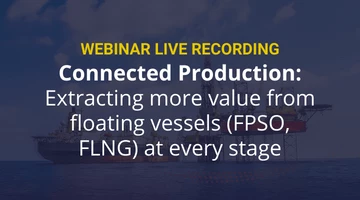FPSO in Asia Pacific: The New Energy Frontier
Add bookmarkIn 2001 there were just 120 floating production units operating worldwide. A decade later this figure has increased to 250 units, according to research by International Maritime Associates (IMA), and more are set to come online in the coming years.
South-east Asia alone currently accounts for 33 of the projects in the pipeline, while Brazil's vast ultra-deepwater reserves account for 47, providing many opportunities for this technology - already suited to deepwater exploration - to advance even further.
Jim McCaul, head of IMA, described the opportunities for future growth within the sector as "hugely positive", explaining: "Global demand for oil continues to grow, the market is again threatened by MENA supply disruptions, oil prices have pierced $100 and virtually every major field operator has announced plans to increase offshore E&D expenditures."
Current FPSO Projects
Evidence from Asia would certainly seem to back up McCaul's point that investment in FPSO is taking place on an increasingly significant scale.
Bumi Armada completed its third FPSO, Berhad, earlier this year and it was promptly sent on assignment in Vietnam. The 22-month project converted a SuezMax tanker into a 55,000 bbls per day FPSO, which has now been put into action on the Te Giac Trang field, located around 100km off the coast of Vietnam.
Hassan Basma, executive director and chief executive officer of Bumi Armada, said: "This FPSO has been specifically designed to process difficult crude with a low wax appearance temperature and to withstand, sustain and remain moored under 100 year return environmental conditions including cyclones and tsunamis prevalent offshore Vietnam; this too in shallow waters of less than 43 metres."
Ezra has also recently sent an FPSO to offshore Vietnam to operate on the Chim Sao oil field, around 350km offshore.
Speaking to Dow Jones Newswires, Ezra Group managing director Lionel Lee said the company recently worked on Shell's Green Canyon project in the Gulf of Mexico to gain expertise in deepwater.
"If you’re looking at the next 10 years, there’s going to be a lot of deep water projects there in the Gulf of Mexico, North Sea, West Africa and South America," he explained.
But looking further into the future, Ezra is targeting the under-developed deepwater regions of Asia Pacific, where upstream oil companies are looking further offshore for reserves.
[eventpdf]
LNG in Asia
With its rapidly growing economies, Asia is the major energy consumer of the future and this – compounded with the current backlash against nuclear power – means a demand for LNG.
In early June, Merrill Lynch released a report in which it said: "Following the shutdown of another nuclear plant, we expect Japan’s LNG imports in 2011 to increase by up to 8.5m tonnes from 70m tonnes last year."
Companies are now being commissioned to create FPSOs for LNG, with Samsung Heavy Industries signing a deal with Royal Dutch Shell for a vessel, which is due to begin construction next year and be delivered by 2016.
A contract signed in 2009 between the two companies will see Samsung supply Shell with LNG FPSOs exclusively for the next 15 years.
"This marks the full-fledged launch of a historic project that will be recorded as the world’s largest contract of its kind," chief executive officer Roh In-sik said.
Daewoo also announced in late 2010 it is to construct a LNG FPSO for a Papua New Guinea project, becoming only the second in the world to sign a high-end contract of this nature.
Building is due to be completed in 2014 and will take place in the Geoje shipyard in South Korea, signalling Asia's growing expertise in the sector.
Maersk's Peregrino, which has recently been deployed in Brazil's deepwater Campos basin, has significant levels of Asian input, with engineering taking place in Singapore and India, processing facilities supplied by various South-east Asian countries, process modules being built in Indonesia and final integration taking place in Singapore.
This early experience will no doubt prove an advantage when the use of FPSOs increases as it is predicted to do.
|
Have Your Say Rate this feature and give us your feedback in the comments section below |











